
- Details
- Written by: Ashley Hibbert
- Category: News
- Hits: 369
Despite our best research efforts, outcomes for most brain cancer have not improved significantly over the last 30 years but Dr Jim Whittle believes that is about to change.


Dr Whittle, a medical oncologist specialising in neuro-oncology at the Peter MacCallum Cancer Centre and Laboratory Head at WEHI, said work happening in the Parkville Precinct is on the verge of making great advances in the treatment of brain cancer.
“One of the biggest challenges in improving brain cancer outcomes is uncovering a way for treatments to cross the blood brain barrier to destroy cancer cells,” Dr Whittle said.
“The blood brain barrier is designed to protect the brain from infection and toxins but in brain cancer it also stops chemotherapy from entering the brain in high enough doses to be effective.”
Research conducted by Professor Ben Hogan, Group Leader at Peter Mac, is providing new insights into how we can overcome this challenge.
“By studying the Zebrafish, we can learn more about the circulatory system and in particular how we can get treatments across the blood brain barrier,” said Professor Hogan.
“This is an area we have been working hard on for the last five years and we are excited to be close to publishing ground-breaking research that should change the way we target the blood brain barrier and deliver treatments in brain cancer in the future,” he said.
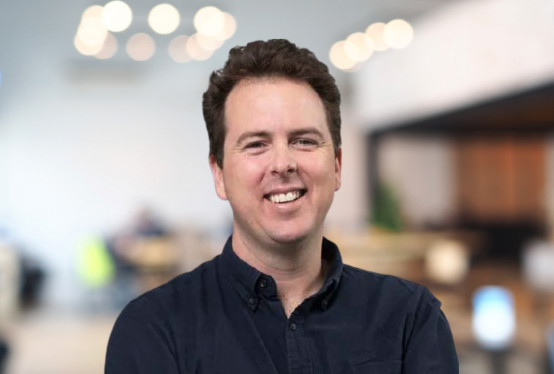
May is Brain Cancer Awareness Month. Almost 2000 people in Australia are diagnosed with brain cancer each year and sadly the survival rate is only 23 percent at five years.
According to Dr Whittle, great advances have been made in next generation immunotherapy treatments for cancers including melanoma, lung cancer and some blood cancers but these treatments have not been successful in brain cancer.
“To develop new immunotherapies for brain cancer we need to better understand the complex tumour microenvironment and the diversity that exists with brain cancer,” said Dr Whittle.
“Research being led by Associate Professor Misty Jenkins at WEHI and the research conducted by Professor Paul Neeson from Peter Mac, is also invaluable in helping us find ways of harnessing our own immune system to fight cancer.
“I want people with brain cancer to know that there is an army of researchers out there trying to solve the problem of how to better treat brain cancer,” Dr Whittle said.
“Within Melbourne there are lots of great studies being conducted so there is no need to travel overseas because the best trials are happening right here.”
Dr Whittle, Professor Hogan and Associate Professor Jenkins are some of many researchers working collaboratively with other institutes through The Brain Cancer Centre. The Brain Cancer Centre brings together over 50 researchers & 11 collaborative partners across the country with a single focus: that one day no lives are lost to brain cancer.
The Brain Cancer Centre recently launched a world first clinical trial Brain-POP (brain perioperative) with research partners WEHI, The Royal Melbourne Hospital, Peter MacCallum Cancer Centre and The Royal Children’s Hospital. This trial is set to transform research into new therapies for brain cancer and deliver more targeted, personalised treatment for patients.
For more information head to www.thebraincancercentre.org.au
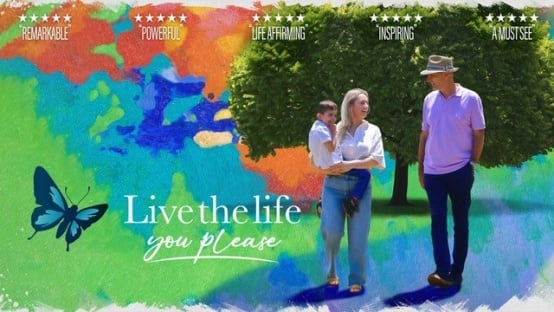
- Details
- Written by: Ashley Hibbert
- Category: News
- Hits: 220
This National Palliative Care Week, Australians are being asked to think and talk about something that can be hard to discuss, how we want to be cared for at the end of our life.

And to help start the conversation, the documentary “Live the life you please” will premiere and be shown in theatres around the country from this week.
“This film aims to prompt an important discussion about a topic we’d all rather avoid – the end of our lives,” says Peter Mac’s Deputy Chief Medical Officer Dr Sonia Fullerton.
“While this can be a confronting subject, it’s important to know that services are available to help people and their families at the end of life.
“And that thinking and talking about these services ahead of time, can make a difficult time easier.”
The film's website says it captures “unexpected moments of joy caught between caregivers, patients and their families” and will “change the way you think about palliative care”.
Dr Fullerton will appear at a special screening of the documentary, organised by Advance Care Planning Australia, on Thursday 8 June, from 7pm at Pentridge Cinemas in Coburg, Melbourne.
Following the screening, a live Q&A session will be held where the audience can ask questions of an expert panel including:
- Advance Care Planning Australia National Program Director Xanthe Sansome
- Journalist and author of “What will I wear to your funeral” Kellie Curtain
- And Dr Fullerton who is also a palliative medicine consultant
Purchase tickets for the special screening and live Q&A or see all screenings of “Life the life you please”Australia-wide.
National Palliative Care Week runs from 21 May to 27 May 2023 and aims to put matters of life and death, front and centre in Australia’s consciousness.
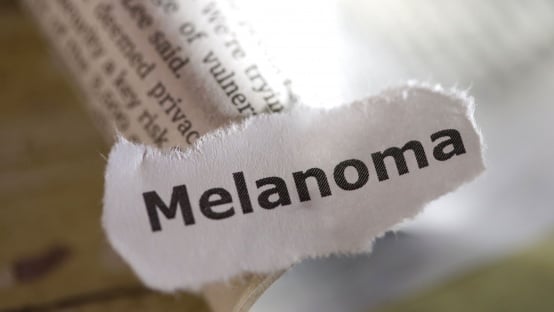
- Details
- Written by: Ashley Hibbert
- Category: News
- Hits: 200
The Victorian Government is helping fund research at Peter Mac to better understand one of Victoria’s most common cancers, melanoma.

Peter Mac Medical Oncologist Dr Prachi Bhave explained that the research project will analyse a range of factors to help predict which patients are at higher risk of having a recurrence of their melanoma after it has been surgically removed.
“We will characterise the melanoma tumour micro-environment using novel multiomic technologies to better understand the biological factors that cause the cancer to reoccur,” said Dr Bhave.
“To do this we will use patient data and tissue and blood samples from the Melanoma Research Victoria comprehensive database, which includes data on over 3500 patients diagnosed with melanoma.
“When we understand the clinical, pathological, molecular, and genomic characteristics associated with early-stage melanoma recurrence, we will be able to uncover prognostic and predictive biomarkers of early-stage melanoma recurrence
“This will allow us to closely monitor patients at high risk of having a return of their melanoma and aim to detect this recurrence before it becomes advanced.
“This important research will help us improve the outcomes of the thousands of Victorians diagnosed with melanoma each year,” she said.
Australia has the highest incidence of melanoma in the world. Melanoma was the fourth most diagnosed cancer in Victoria in 2020 and it is estimated to become the third most diagnosed cancer by 2023.
This research project is funded through the 2022 Victorian Government - 2022 VMRAF - Round 6 - Tier 1 application and is conducted in collaboration with the WEHI.
If you would like to further support melanoma research please consider a donation to the Peter Mac Foundation.
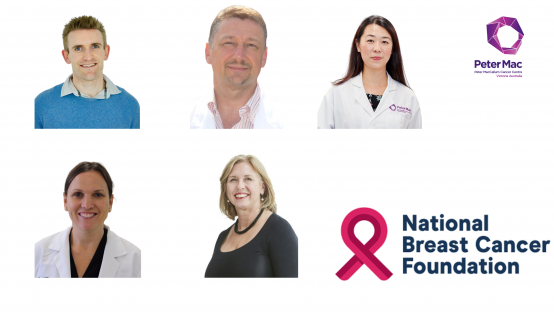
- Details
- Written by: Ashley Hibbert
- Category: News
- Hits: 173
Peter Mac researchers working on cures for breast cancer have just been awarded more than $4.5 million in grants from the National Breast Cancer Foundation. Each day 57 women are diagnosed with breast cancer and it remains the second largest cause of cancer death in women.

In a quest to change outcomes for breast cancer the National Breast Cancer Foundation has funded four researchers from Peter Mac so they can explore their novel concepts.
Professor Ricky Johnstone, Executive Director of Cancer Research said “The quality of our breast cancer research proposals was clear with 55 per cent of our submissions receiving funding.
“We thank the National Breast Cancer Foundation for their support and belief in our researchers, we look forward to uncovering new ways to treat this very common cancer.”
Associate Professor Paul Beavis - Genetic engineering of immune cells to treat breast cancer.
Associate Professor Beavis will work to redirect a patient’s own immune cells by genetically engineering them with a Chimeric Antigen Receptor (CAR), known as CAR T cell therapy. The CAR allows the immune cells to ‘recognise’ and subsequently kill tumour cells.
This therapy is highly effective in blood cancers however this approach is currently not effective in breast cancer. This is because breast cancer cells can adapt so the protein targeted by the CAR is no longer present and the cancer cells escape detection.
To overcome this, Associate Professor Beavis’ lab have engineered immune cells to express both a CAR and a second factor that activates the host immune system to ‘join’ the attack against the tumour. Associate Professor Beavis explains this approach here.
To improve the efficacy of this treatment further he will engineer immune cells to secrete factors only when they 'see' tumour cells so the patient's immune system is activated locally to kill tumour cells. This should reduce toxicities that affect a patient quality of life and their ability to tolerate the therapy. Ultimately Associate Professor Beavis aspires to transition this to a first in human CAR T cell trial at the Peter Mac.
Professor Riccardo Dolcetti - Targeting novel classes of tumour antigens in BRCA-deficient breast cancer to improve immunotherapy responses and overcome resistance.
The use of the patient’s immune system for the treatment of challenging cancers is providing hope however more research is needed to make these treatments effective for breast cancer. This is particularly relevant for breast cancer caused by the BRCA gene mutation that still have limited therapeutic options.
Therapeutic cancer vaccines are an emerging and promising approach to using immunotherapies to treat breast cancer. This is because the vaccine will generate new immune cells that are able to recognise cancer-specific targets (antigens) and eliminate tumour cells displaying those antigens. The challenge is identifying the right targets.
Professor Dolcetti’s lab have developed new technologies that allow the identification and selection of novel antigens produced by breast cancers with BRCA1/2 mutations or those that don’t have the gene but their cancer behaves like those with the BRCA genes mutated. He will select and test vaccines that display the most “potent” target antigens to look at safety and efficacy ahead of trials in humans.
Associate Professor Belinda Parker - Using hormone targeted drugs to switch on the immune response against cancer.
To make a difference for breast cancer patients, Associate Professor Parker aims to identify hormone-based therapies that, when used at the time of diagnoses, are most likely to prevent subsequent metastatic spread.
Associate Professor Parker’s lab has discovered that specific hormone therapy approaches, including those about to be trialled in the clinic, have the potential to make migrating cancer cells more visible to the immune system. This prepares the body to attack its own cancer before it has the opportunity to spread to other parts of the body, like the bone.
Associate Professor Parker will test a range of standard treatments and alternate hormone therapies to see if they can alter the bone environment to promote cancer cell destruction before the formation of large metastases, when it’s too late to intervene. Her tests will use a novel biology-based screening technology and pre-clinical (including living human tissue) models of metastatic hormone driven cancers.
This work will provide a new approach for prioritising the most promising hormone therapies upfront for standard of care upon diagnosis of hormone driven breast cancer.
Professor Christobel Saunders- kConFab, a resource to facilitate a range of research into familial breast cancer to improve treatments, survivability and risk-reduction options for those at high-risk.
Cancer is due to an inherited gene fault (mutation) for one in 20 people. This puts multiple family members at risk of not just breast, but also ovarian, prostate and pancreatic cancer, often at a young age.
kConFab is a world-class resource that has had a major impact on outcomes for high-risk cancer families through improved cancer prevention strategies, medications and cancer treatments. It collects blood and tissues, clinical, genetic and lifestyle data on 2,132 multi-case breast/ovarian cancer families and makes this resource available for approved research.
kConFab collaborators have discovered breast, ovarian and prostate cancer-causing mutations that have enabled personalised risk-assessment for family members however more needs to be done. There are still many breast cancer families where the mutation causing the cancer is yet to be found.
Professor Saunders, Professor Sherene Loi and the kConFab team under Associate Professor Heather Thorne will use kConFab to further improve what we know about gene mutation carriers and to identify the unexplained genetic causes in nearly half of the high-risk families including:
-
gene discovery
-
improved screening and early detection biomarkers for cancer prevention/early cancer detection
-
develop better cancer treatments and risk reduction strategies including medications
-
research into metastatic disease
-
research into the lifestyle and molecular genetic causes of not only breast, but also prostate, pancreatic and ovarian cancer
-
psychosocial factors that contribute to positive health outcomes for these women and families.
Dr Clare Slaney - Turning COVID-19 induced immunity against breast cancers.
Dr Slaney’s lab has found a way to make CAR T-cells work in the solid tumour setting. Dr Slaney used a vaccine to stimulate CAR T-cells which was extremely effective at eradicating cancers of the breast, sarcoma and colon in mice. However, to translate this to humans, the major hurdle is identifying a potent vaccine that stimulates T cell receptors that will work in most people.
During the COVID-19 pandemic, a number of vaccines were developed, and the majority of the vaccines target the SARS-CoV-2 spike protein. Thus, the spike protein-specific memory T cells are already present in the majority of the world population, either by vaccination, or by infection. These memory T cells can be re-activated and expanded by the spike protein.
Dr Slaney’s lab will try to use SARS-CoV-2-specific memory T cells from vaccinated or COVID-19-recovered patients as a source of CAR T cells (Corona-CAR). They will use a COVID mRNA vaccine to stimulate the Corona-CAR T cells to fight against cancers. If successful, this project will provide a substantial breakthrough in cancer treatment, and translation to the clinic could be achieved in the short term.
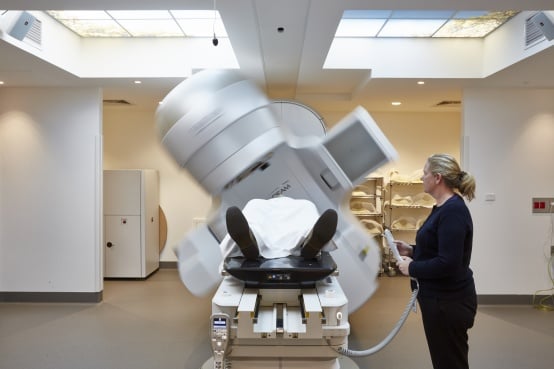
- Details
- Written by: Ashley Hibbert
- Category: News
- Hits: 136
A pioneering radiotherapy treatment developed at Peter Mac is emerging as a new treatment option for cancer that has spread to the lungs, following exciting results in a recent study.

Long-term survival data is now available from the SAFRON II clinical trial, which involved patients with up to three spots of cancer that had metastasized or spread from elsewhere to their lungs.
Patients in this Peter Mac-led trial received a type of high-dose and precisely targeted radiotherapy called SABR (Stereotactic Ablative Body Radiotherapy) to treat their cancers, instead of either surgery or ongoing drug therapy, which are standard alternatives.
The long-term data shows that one-in-three had no active cancer at five years, enjoying many years of excellent quality of life without needing ongoing treatments.
Peter Mac Associate Professor Shankar Siva is presenting the latest data at the European Society for Radiotherapy and Oncology conference in Vienna, Austria this week with a simultaneous publication of his paper in the Journal of Clinical Oncology.
This report describes the long-term outcomes of trial participants from 13 centres across Australia and New Zealand.
A/Prof Siva says the SAFRON II trial provides the most robust evidence to date for any metastasis-targeted cancer treatment in the lung.
“In comparison to surgery, SABR is non-invasive, has fewer side effects, and does not require anaesthesia or hospitalisation, so it has less interruption to life from a patient’s perspective,” he said.
“Compared to lifelong drug therapies, which is another standard alternative, SABR has little impact on quality of life, is approximately 10 times less costly, and can be delivered in as little as one to four visits of one hour each.
"Patients can drive in, drive home for dinner with loved ones on the same day and have all their cancer treatments done. These are exceptional long-term outcomes.”
The single fraction lung SABR treatment was initiated at Peter Mac and introduced nationwide over the last decade. A/Prof Siva has previously led the use of SABR to treat inoperable primary renal cell carcinoma and is proud to be a part of this innovative approach to treat cancer.
“We are very proud to have helped advance care and improve patient outcomes as leaders in pioneering this new treatment,” he said.
“We believe this approach to treatment has great promise and we’re excited by the results of this trial.”
Funded by Cancer Australia, this study was led from inception through to delivery by Peter Mac as the lead institution of this TranTasman Radiation Oncology Group trial across Australia and New Zealand.
The paper is titled "Long-Term Outcomes of TROG 13.01 SAFRON II Randomized Trial of Single- Versus Multifraction Stereotactic Ablative Body Radiotherapy for Pulmonary Oligometastases" and you can read it in full on the JCO website.
ENDS
Contact
To arrange a media interview, contact Peter Mac Communications on 0417 123 048 or email
About Peter Mac
Peter MacCallum Cancer Centre is a world-leading cancer research, education and treatment centre and Australia’s only public health service solely dedicated to caring for people affected by cancer.
